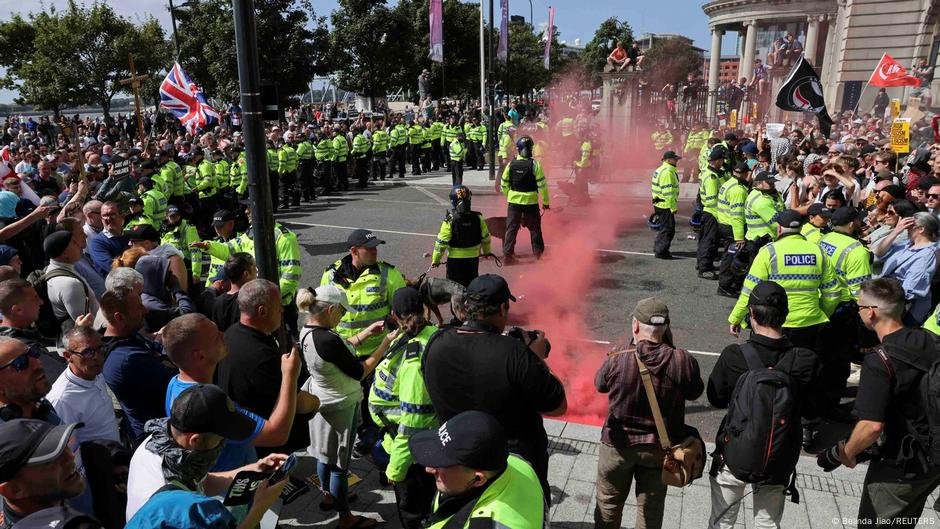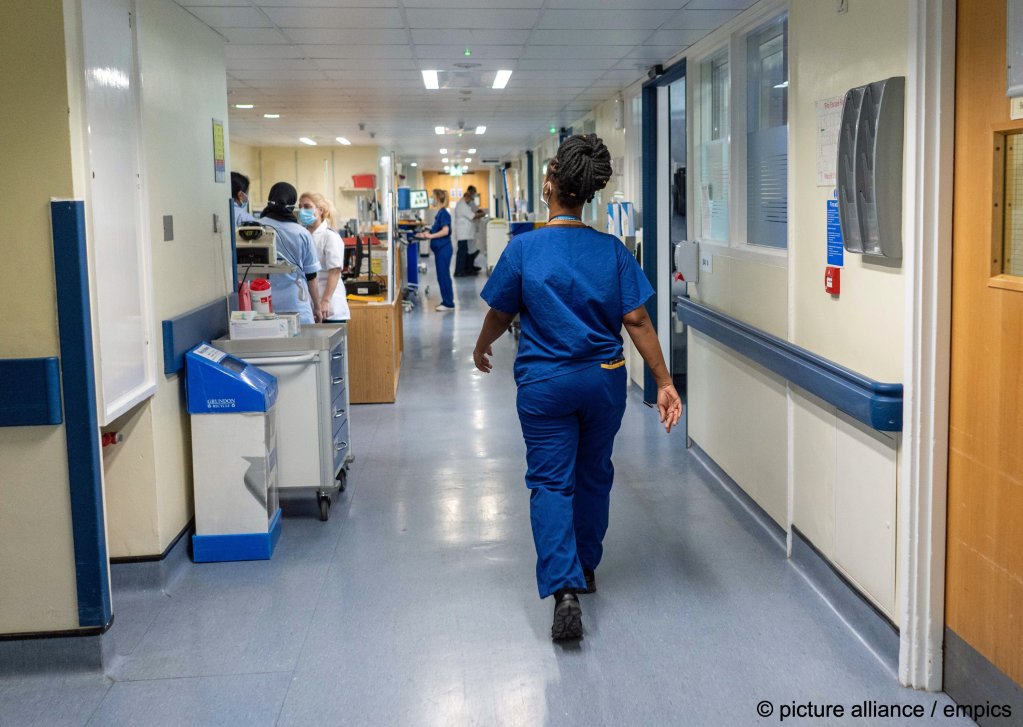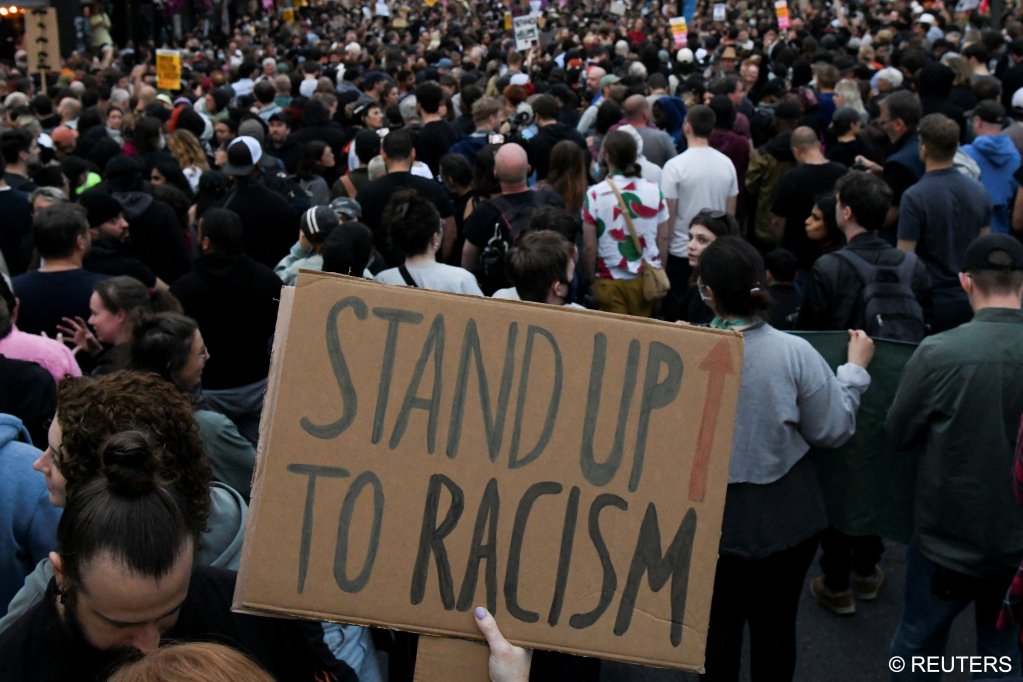Violence sparked by disinformation spread by far-rights groups has gripped the UK for over a week. Some migrant workers – who provide critical support to the country's economy – now say they want to leave.
Migrant workers are in hyper-vigilant mode after an attack on two Filipino nurses linked to racist mob violence across the UK.
Two nurses in Sunderland, northeast England were attacked on Friday night (August 2) as they traveled to work for emergency cover, the local British newspaper the Sunderland Echo reported.
The nurses were "terrified" as rioters pelted their taxi with rocks, but escaped physically unharmed.
UK Health Secretary Wes Streeting condemned the attack, saying it had "brought enormous shame on our country." He also said healthcare staff had the right to refuse medical treatment to anyone exhibiting racism or violent behavior.

Riots broke out in the wake of a knife attack last month in Southport, northwestern England, that left three young girls dead. The suspect, a 17-year-old male, has been charged with murder. Far-right groups hijacked the incident to spread disinformation about the suspect being an asylum seeker and called for violence.
Used to everyday racism, but not like this
For Al, a Filipino nurse in Cambridge, the Health Secretary’s statements are a welcome show of support but do little to appease his apprehensions about being a random target of far-right violence.
Al, who asked that only his first name be used, told InfoMigrants that the unbridled show of hate and racism in the riots is nothing he has ever seen before in his five years working in the UK.
"I've gotten used to the polite everyday racism here but this, this expressed racism and hate is frightening," said Al, who is also the spokesperson for the foreign worker rights group Migrante UK.

Al recalled a few years back when one female elderly British patient asked for someone else to treat her. "It turned out she wanted to be attended to only by a White nurse. I wanted to tell her, 'Good luck finding one!'."
Government statistics indicate that nearly one in five of the National Health Service (NHS) staff have a non-British nationality. Of the over 200 nationalities that comprise the NHS, about 122,000 are Asian nationals (8.6 percent), while over 70,000 are EU nationals (5.2 percent). The UK government has fast-tracked visas for overseas healthcare workers in a move to plug its massive shortage in the healthcare industry.
The British public broadcaster, BBC, reported Wednesday that foreign nurses in the Northern Ireland capital Belfast want to go back to their home countries. Citing the Belfast Health Trust, the BBC said that at least 10 nurses have said that they will leave Northern Ireland at the end of their contract because of recent hostilities.
Also read: Racist violence hits Northern Ireland capital
A staff nurse from India, who asked to remain anonymous, told the broadcaster: "I’m frightened to come to the hospital for work... In my point of view, I treat everyone equally, and I don’t know why they aren’t treating us equally. Maybe I’ve just helped your grandfather, and we are doing our job, and I wonder why this is happening and why we are targeted."
Florence Yilmaz, a volunteer for the Filipino Domestic Workers Association, told InfoMigrants that what is particularly worrisome is how the violence on the streets mirrors the government's anti-migrant policy.
"They’re echoing the words of politicians when they yell, 'You’re taking our jobs!' Why? Does he want my job scrubbing other people’s houses? Does he want my job taking care of elderly people?," said Yilmaz.
Organized, planned attacks
The Bureau of Investigative Journalism reported Tuesday that at least nine groups on the messaging platform Telegram contained posts with incitements to violence or instructions on how to commit acts of violence such as building explosives. Other posts contained death threats against Home Secretary Yvette Cooper and Nick Lowles, chief executive of the antiracism organization Hope Not Hate.

August7,2024 | Photo: Chris J. Ratcliffe/REUTERS
Migrant workers have taken informal steps to protect themselves by sending out notices in chat groups about places to avoid, steering clear of sites of unrest, and not traveling alone, especially at night.
"This kind of violence that we have seen was previously unthinkable. It seems that anyone who is a person of color can be a target," Christ Godino, a campaign and advocacy officer for Kanlungan UK, told InfoMigrants.
The riots have left asylum seekers, migrants and undocumented guest workers in a precarious situation, at risk of being targeted but having nowhere to go.
Prior to the rallies, Godino said that the authorities were already conducting house-to-house raids to carry out deportations leading to a distrust of the authorities. Now migrant rights organizations are bracing themselves and taking measures to protect each other. Group chats buzz with message threads to come together for counter-protests and to protect mosques.
"The solidarity among the migrants has been incredible. Relying on each other in the community will save us," said Godino.
Also read: UK riots: British Muslims in Liverpool working to heal
